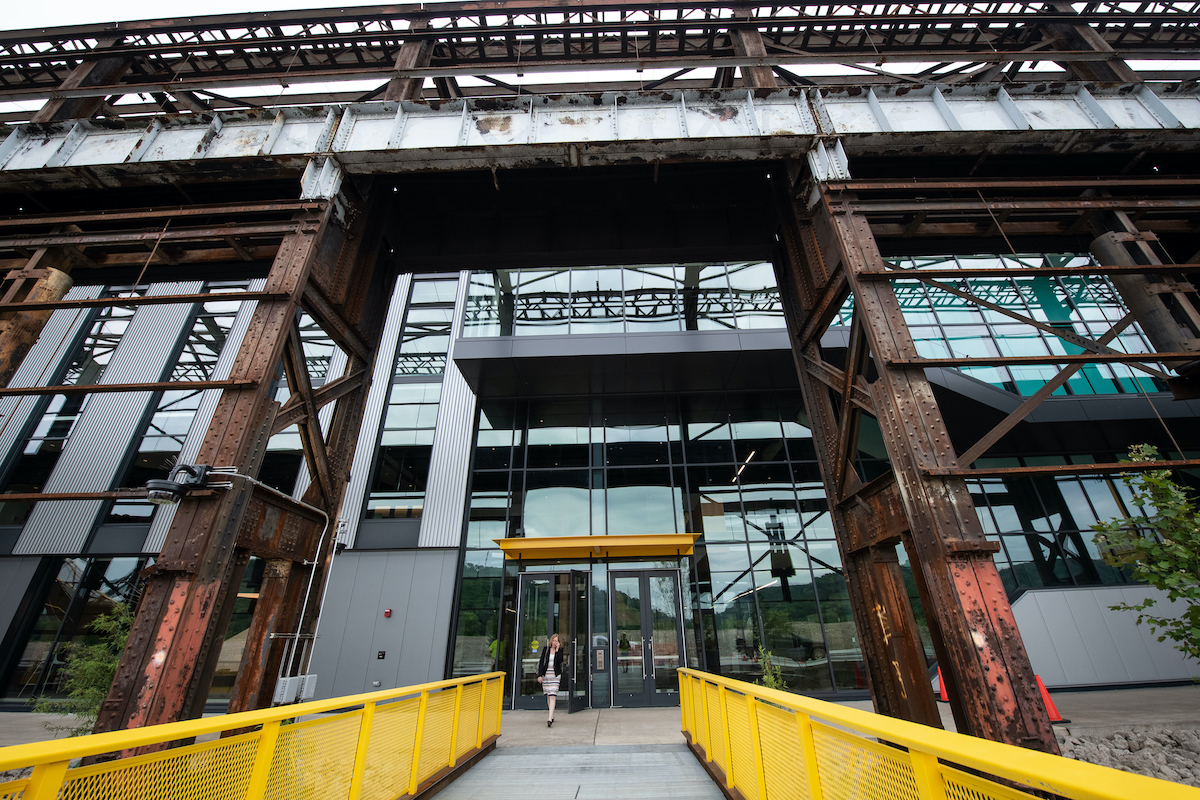The Pittsburgh tech scene has seen growth from startups to big companies like Google and Facebook over the past few decades. Now, a new influx of money could launch further growth after the pandemic by connecting local academic prowess with homegrown entrepreneurial talent.
Last month, Carnegie Mellon University announced a grant of $150 million from the Richard King Mellon Foundation to fund new science and technology resources in Oakland and a robotics manufacturing center at Hazelwood Green, a growing innovation hub at the site of a former steel mill. The new Oakland building, which will be located next to the Carnegie Museums on Forbes Avenue, will house modern laboratories focusing on automation and machine learning, while the manufacturing center will aims to advance and integrate CMU’s robotics work into the community.
The grant signals a renewed investment in Pittsburgh’s technology talent, much of which comes from CMU itself, and a reinforcement of the city as a global hub for robotics.
“While advancing our education and research missions, these initiatives will also further CMU’s commitment to positive societal impact, both regionally and nationally,” CMU President Farnam Jahanian wrote in an email, speaking to the grant’s funding of science, advanced manufacturing and robotics innovation beyond university walls. “The impact of this investment will be felt across Carnegie Mellon as well as in the Pittsburgh region, with the potential to revolutionize industries and catalyze economic development in Western Pennsylvania and beyond.”

Joel Reed, executive director of the Pittsburgh Robotics Network, agrees: The new resources afforded by this grant will both attract more talent to CMU and Pittsburgh, and generate new intellectual property that could fuel startup generation. But even more importantly, he told Technical.ly, this increased commitment to what is already a leading robotics institution “continues to attract and grows the number of investors that are interested in the community and what’s happening here.”
Robotics, more than other tech industries, typically requires a hands-on approach, making remote work difficult. Because of that, Reed says this continued building of research and manufacturing infrastructure here increasingly makes Pittsburgh a destination city for the industry.
“Much like people budget to go to the Bay Area each year, or multiple times each year, if you’re an internet technology — it’s already happening that they’re coming through Pittsburgh on a regular basis [for robotics],” Reed said.

CMU will dedicate half of the grant to the Oakland building and the other to the manufacturing and innovation center at Hazelwood Green. While not the only tenant of the growing riverfront site, CMU’s commitment to the redevelopment through this grant is significant for local neighborhood members like Sonya Tilghman, executive director of the Hazelwood Initiative, one of several community partners to Hazelwood Green.
“It’s an impressive grant, and I think it speaks to both the [Richard King Mellon Foundation] commitment and CMU commitment to Hazelwood in general,” said Tilghman. “The one thing that I think is appealing to me, and presumably other community organizations, is how do we capitalize on their commitment to the neighborhood so that it benefits residents who live here?”
Redevelopment efforts, especially as they relate to tech in Pittsburgh, can be a difficult subject. One of the largest projects in recent memory is the remodeling and building of Bakery Square — an office and shopping center in East Liberty that, while successful in creating local tech growth, also led to the displacement of hundreds of residents and increased gentrification of the surrounding neighborhoods.

Along with other community partners, Tilghman and the Hazelwood Initiative are there to help make sure that doesn’t happen again.
“Even on our part, the practitioners, there’s understandable concern,” she said. “I think there are the right partners in place today, but that project’s not going to get done today, it’s probably a 20-year thing.” And in order to provide local support and gain neighborhood, Tilghman emphasized that it will take “20 years of vigilance to make sure that it develops in a way that’s beneficial to this community.”
Some of that vigilance includes preserving affordable housing through permanent options for renters and owners alike, she said. After providing basic housing security to Hazelwood residents, Tilghman hopes that institutions like CMU will invest not only in varied job creation across the new tech hub, but also in education opportunities that provide more entryways into that workforce.
“Once you know where you’re going to lay your head, then things like going to get an associate’s degree become more attainable or achievable,” she said. “It’s something you can visualize.”
While exact plans around these ideas have not yet been decided, the initial grant announcement emphasized on leveraging the funding to realize a center that “is inclusive of the local community, with a focus on sustainability, equity and inclusive economic opportunity.”
Tilghman sees hopeful signs of progress, particularly in the Center for Shared Prosperity that CMU announced with the Heinz Endowments in April.
“They’ve been in the neighborhood for a long time in some form or fashion,” she said. But with both of these new initiatives, “they’re going to have a new level of presence here, and they’ll have an opportunity to actually show what they mean by shared prosperity.”








